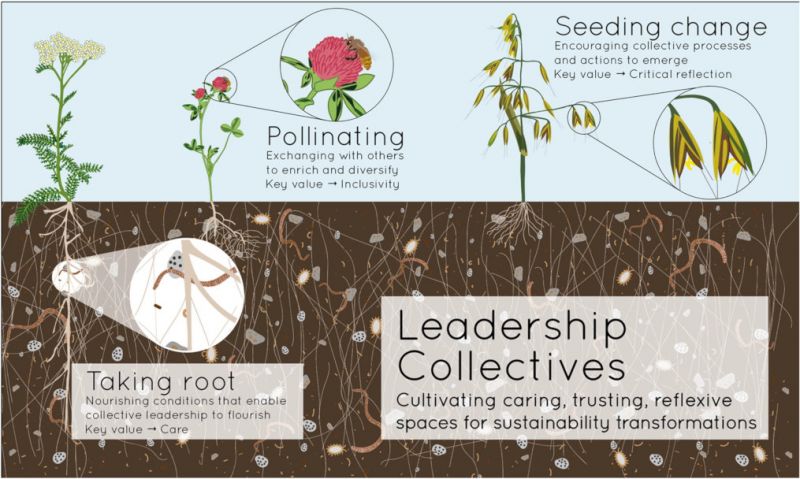Creating Leadership Collectives for Sustainability Transformations
* Paper outlining a new model of collective leadership
URLs:
- On the web at https://link.springer.com/article/10.1007/s11625-021-00909-y
- PDF at https://link.springer.com/content/pdf/10.1007/s11625-021-00909-y.pdf
Citation
Care, O., Bernstein, M.J., Chapman, M. et al. Creating leadership collectives for sustainability transformations. Sustain Sci 16, 703–708 (2021). https://doi.org/10.1007/s11625-021-00909-y
Abstract
Enduring sustainability challenges requires a new model of collective leadership that embraces critical reflection, inclusivity and care. Leadership collectives can support a move in academia from metrics to merits, from a focus on career to care, and enact a shift from disciplinary to inter- and trans-disciplinary research. Academic organisations need to reorient their training programs, work ethics and reward systems to encourage collective excellence and to allow space for future leaders to develop and enact a radically re-imagined vision of how to lead as a collective with care for people and the planet.
Keywords: Sustainability transition · Collegiality · Well-being · Equality · Academic practice
Graphic
Extracts
From the introduction
The latest scholarship and training programs in sustainability science and practice recognise the importance of collective leadership for addressing pressing sustainability challenges. Yet, the focus of these efforts is on centralised models of collective leadership in which an individual leader is responsible for crossing boundaries and establishing collaborative partnerships to transform systems (e.g. Gordon et al. 2019). Such models are evident in the Earth Leadership Program and the Homeward Bound program, where the foci are on building the capabilities of individuals to convene groups and develop shared visions. In our view, such collective leadership models remain insufficient to enact meaningful and equitable sustainability transformations. A polycentric form of collective leadership is needed to achieve structural changes. We advocate for the creation of leadership collectives: groups of individuals from multiple organisations and sectors who lead transformational social change together through critical reflection, inclusivity and care.
Commentary
Simon Grant:
This seems to fit well with insights such as Next Buddha Will Be A Collective, and could provide much input to a model for P2P research groups.
Also appearing to me in the same frame are Collective Presencing and Art of Hosting,
as well as the relatively well-documented non-hierarchical leadership patterns of Sensorica, Enspiral, Percolab and similar.
It fits well with Microsolidarity insights.
The particular interest of this for me is its application specifically to research activities.
